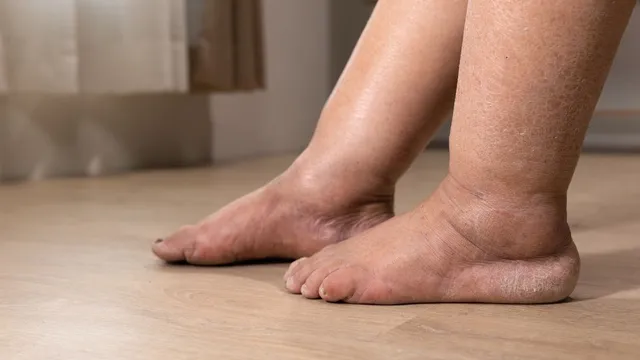- By Iram Hussain
- Tue, 27 May 2025 05:53 PM (IST)
- Source:JND
A common but sometimes unnoticed sign of decreased kidney function is constant tiredness. Toxins and waste can accumulate in the bloodstream if the ability of the kidneys to eliminate them weakens. A general feeling of exhaustion, poor energy and trouble focusing could arise from this buildup. Anaemia, another ailment commonly linked to Chronic Kidney Disease (CKD) can also worsen chronic fatigue.
In a conversation with Jagran English, Dr. Ganesh N Mhetras, Consultant - Nephrology, Manipal Hospital, Kharadi, Pune explained about chronic fatigue, puffy eyes and swollen ankles can indicate kidney issues.
Warning Signs
Chronic fatigue is a common yet neglected side effect of decreased kidney function. When the kidneys are unable to eliminate toxins and waste effectively, they can pool back into the bloodstream. This pooling can cause a general feeling of tiredness, a lack of energy and difficulty concentrating. Chronic fatigue can be exacerbated by anaemia which is frequent in people with chronic kidney disease (CKD).
Protein entering the body through regular urination could be the cause of eye puffiness that is more visible in the morning. Protein regularly cannot pass through the urine when the kidneys are in good condition. Ocular edema can arise from albumin, for instance, entering the urine due to a malfunctioning filtering mechanism. More investigation into the symptom should be done if eye puffiness coexists with weariness, changes in urine or other potential reasons.
Fluid retention leads to swelling in the lower extremities (usually the ankles and feet) as renal function declines. The kidneys attempt to maintain a proper fluid level in the body, but with the decline in renal function, excess salt and water can accumulate in the tissues. Eventually, you will have significant oedema which usually will worsen at the end of the day and after standing a long time.
When to suspect kidney involvement?
Although these issues can be put on by a variety of conditions, the presence of several symptoms could point to a kidney issue. Other signs that could be used to diagnose kidney disease include nocturia (frequent nighttime urination), elevated blood pressure, frothy urine and irregular weight gain.
People who have a family history of high blood pressure, diabetes, renal illness or other concerns should exercise caution. Regular screening and prompt medical evaluation are essential for early detection and treatment of chronic kidney disease because it may not exhibit any noticeable signs in its early stages.
Swollen ankles, ocular puffiness and chronic weariness should not be disregarded, particularly if they coexist. These little symptoms might be the first indications of renal dysfunction. Early detection of getting worse kidney function by blood and urine tests can prevent serious issues. To preserve the kidneys and delay the onset of severe medical conditions, early detection and treatment are still important.
ALSO READ: Doctor Lists Warning Signs Of Kidney Stones You Should Not Ignore
ALSO READ: 5 Unusual Morning Symptoms That Could Signal Kidney Damage

